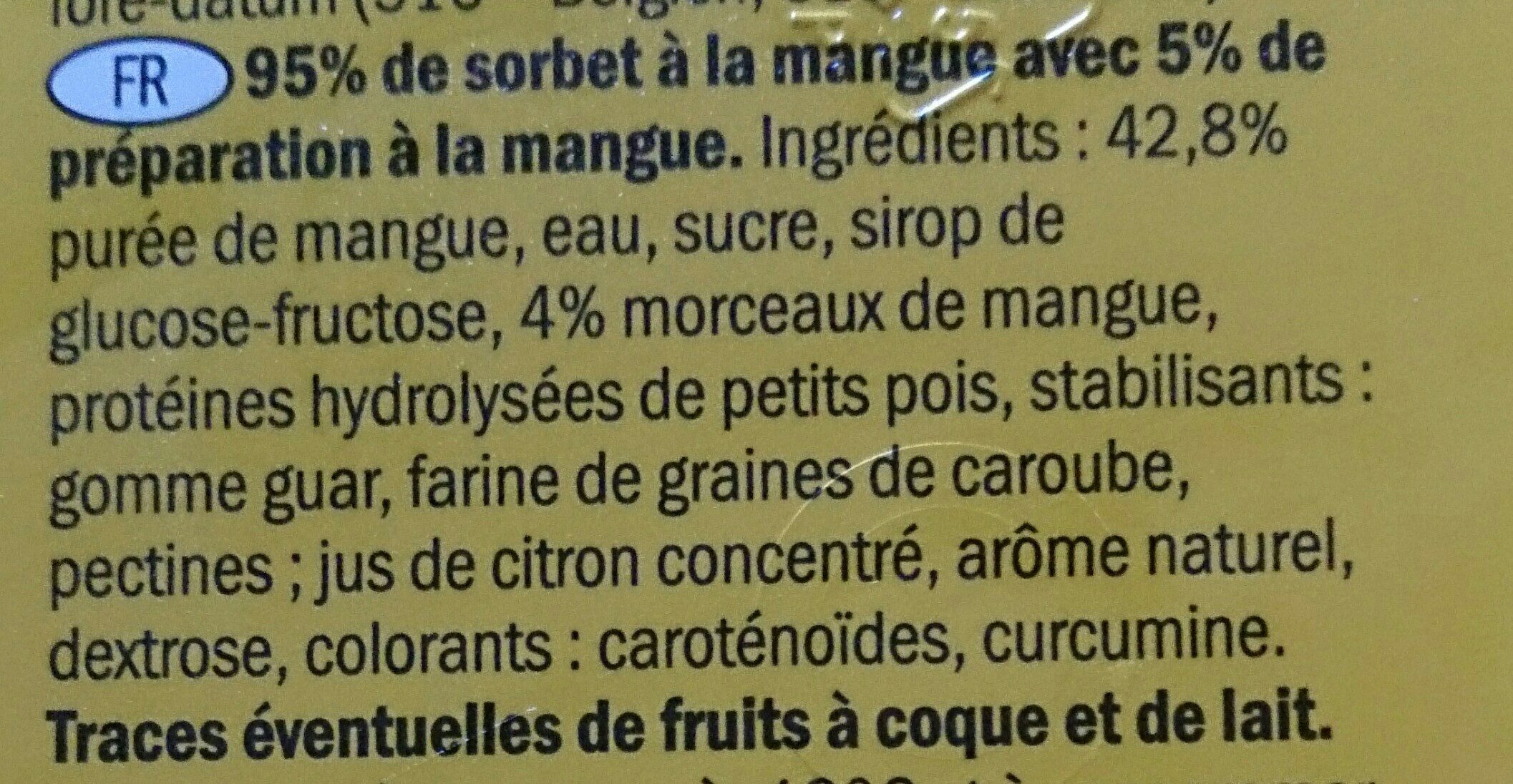Mango sorbet - Gelatelli - 665 g / 1000 mk
Codi de barres ambigu: aquest producte té un codi de barres amb número de circulació restringit per a productes d'una empresa. Això significa que diferents productors i botigues poden utilitzar el mateix codi de barres per a diferents productes.
×
Aquesta pàgina del producte no està completa. Podeu ajudar a completar-la editant-la i afegint-hi més dades a partir de les fotos ja disponibles, o fent-ne més amb l'aplicació de androide o iPhone / iPad. Gràcies!
×
Codi de barres: 20548506
Quantitat: 665 g / 1000 mk
Empaquetament: Plàstic, PP 5 - polipropilè, en:Box, en:Frozen
Marques: Gelatelli, Deluxe, Lidl
Categories: Postres, Aliments congelats, Postres congelats, Sorbets i gelats, en:Sorbets, en:Mango sorbets
Etiquetes, certificacions, premis:
Vegetarià, Vegà, Punt verd
Llocs de fabricació o processament: Bélgica, Francia
Botigues: Lidl
Països on es va vendre: República Txeca, França, Alemanya, Espanya
Matching with your preferences
Entorn
Petjada de carboni
Empaquetament
Transport
Report a problem
Fonts de dades
Producte afegit per javichu
Última modificació de la pàgina del producte per quechoisir.
La pàgina del producte, també editada per benbenben, beniben, ecoscore-impact-estimator, foodrepo, kiliweb, moon-rabbit, musarana, naruyoko, neptuno, openfoodfacts-contributors, packbot, risajanda, tacite, yuka.RnFRdEg1OGlwUFZVa01BUTh6N0t3UFpwOWFLTFRUT3pBZHN6SVE9PQ, yuka.RzRJK0s2QmZoOVExdWRvL3dURHJvK2w0d0xhc1htQ21EY1ErSUE9PQ, yuka.UUpzZUlJNFlwTUFEbjlnVjh3UDY0dmhxM0xTR1luaWJJTFFWSWc9PQ, yuka.UeFlAYSbNsYzEN3I_Zgl-DviD9b8CuJ7QWEkog, yuka.WGZrblBKaGZvdkJVcHNVLzdrL2txdlJueUxXSUJUT21OTFVTSWc9PQ, yuka.sY2b0xO6T85zoF3NwEKvlmgYU_DPhQzlCQL5tXS64OyzcYDvZo5X3dX8bKo, yuka.sY2b0xO6T85zoF3NwEKvlnFCC_HGjTvANxP5t1-P_OWQB7zFYc5ts9DzN6g, yukafix.








